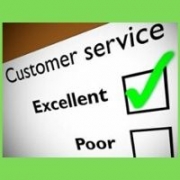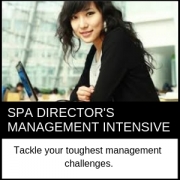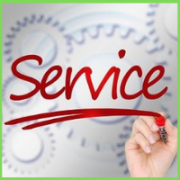Customer Experinece Wanted: #1 In a Series
Customer experience, or “CX” in industry parlance, is the real-world outgrowth of UX, User Experience. While this seems ironic, if not absolutely bass-ackward, the big players in the consumer space figured that if online user experiences were so important, maybe offline user experiences might matter, too.
For decades big business has been paying lip service to customer service. (United Airlines, anyone?) Companies legendary for their customer service, like Nordstrom, Southwest Airlines and Ritz Carlton, were in short supply. That’s why these superstars turn up again and again whenever customer loyalty and customer service are discussed.
Now research has quantified the benefits of improving customer service. In their book Outside In, Kerry Bodine and Harley Manning of Forrester Research document the dawning understanding on the part of Fortune 500 companies that there really is a competitive advantage and when you deliver superior customer service.
This is why, when I enter Wells Fargo Bank today, I feel like I’m entering the set of a musical entitled The Happiest Bank in the World. I am greeted with smiles and hellos, walking through a veritable gauntlet of friendly, well-groomed folks. Even the security guy brought my dog some water on our last visit. When I visit the branch, which is increasingly seldom, I look for my business banking specialist Gustavo so I can say hello. It’s a little bewildering, how happy they all are–after all, it’s a bank–but it has done wonders for my perception of the Wells Fargo brand.
I co-founded one of the country’s first day spas, Preston Wynne, and operated it for thirty years. I recently hung up my spa spurs, but what got me up in the morning for those 360 months was the opportunity and challenge of creating customer delight.
For every minute of that company’s existence, it has been about delivering memorable and satisfying “CX.” (Not even I can resist the allure of this bite size acronym.)
Our mission statement was short and sweet: “Do everything in our power to enable our guests to feel absolutely wonderful, whether they’re calling us on the phone or visiting us for the day.”
Easier said than done, we know. Even with 50 employees, infusing that idea into everyone’s behavior every minute of every day was a work in progress. It is something akin to a spiritual practice–the work is never actually done. We fail in new ways constantly, learn from that, and refine our approach, including customer service protocols, over and over.
Great CX begins with great people. Our strategy was to hire people with personality attributes that not only enabled them to create a superior CX but literally compelled them to do it, as described in the customer service best-seller Who’s Your Gladys? How to Turn Even the Most Difficult Customer into Your Biggest Fan, where we were profiled along with service legends like Thai airlines.
The most important characteristics:
- empathy
- positive outlook (glass half full)
- resilience
- sense of humor
- good self esteem
How do you figure out if the person who’s applying for a job with your company possesses these traits?
- Interview the holy heck out of them (and ask the right sort of questions)
- Expose them to lots of different people in your organization and get their take
- Have them do a paid audition for a few days
- Check references. Good people have fans who are willing to sing their praises.
- “Hire slow and fire fast,” recognizing that if it’s not a honeymoon to begin with, it never, ever gets better.
One shortcut to finding the right customer care specialists is to use a social-style categories, such as DISC or Myers-Briggs. We made use of a system that classifies people as either relationship-driven or results-driven. (Guess who gives better customer service?) Then those subsets are broken down as risk-takers (who don’t really care what others think of them) and those who are risk averse (who fear rejection.)
The best social style for customer care is the Amiable style (relationship driven/risk averse.) Next best is Expressive (relationship driven/risk-taking) though they’re better salespeople and tend to make more mistakes when using systems or following protocols. Someone who’s halfway between the two is ideal. Too much fear of rejection can turn an employee into a puddle when facing an angry customer.
Next blog: Three ingredients of world class CX




 If you’re already involved in spa operations, you’ll find solutions for your toughest management challenges. If you’re planning a facility, you’ll leave this program with a clear-cut strategy for business success. If you’re considering a career change or advancement into spa management, the Spa Director’s Management Program will put you miles ahead of the competition. This fast-paced, information-packed program is full of original, innovative but practical concepts that are actually at work in top spas. We work hard to make sure the days you spend with us are extremely rewarding. You’ll also take home our exclusive text, an incredible reference you’ll use again and again. This includes tools you’ll be able to put to use the day you return to work. You’ll have a chance to meet other spa industry professionals, a diverse group of people, from all over the world. Participants typically represent a variety of industries and greatly enrich the program with their input. You’ll create a support network that will prove invaluable as your business or career grows. The small size of the class ensures individual attention and maximum interaction.
If you’re already involved in spa operations, you’ll find solutions for your toughest management challenges. If you’re planning a facility, you’ll leave this program with a clear-cut strategy for business success. If you’re considering a career change or advancement into spa management, the Spa Director’s Management Program will put you miles ahead of the competition. This fast-paced, information-packed program is full of original, innovative but practical concepts that are actually at work in top spas. We work hard to make sure the days you spend with us are extremely rewarding. You’ll also take home our exclusive text, an incredible reference you’ll use again and again. This includes tools you’ll be able to put to use the day you return to work. You’ll have a chance to meet other spa industry professionals, a diverse group of people, from all over the world. Participants typically represent a variety of industries and greatly enrich the program with their input. You’ll create a support network that will prove invaluable as your business or career grows. The small size of the class ensures individual attention and maximum interaction.